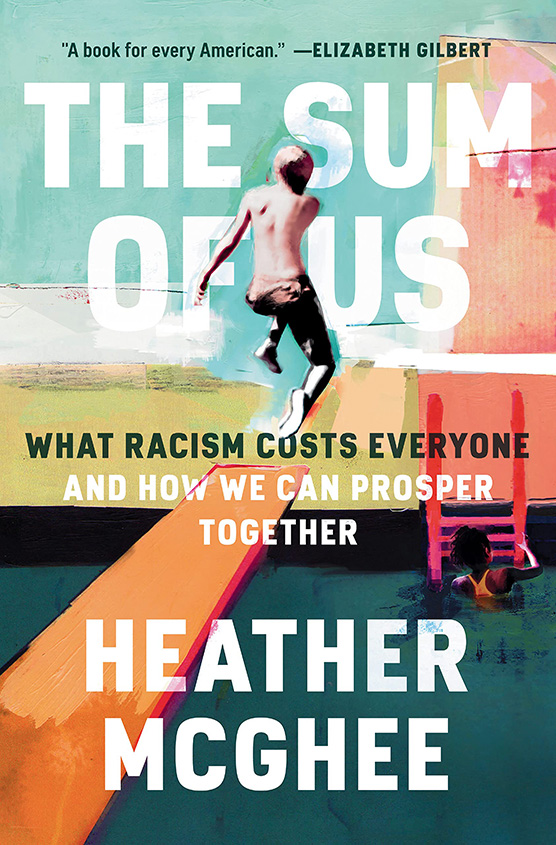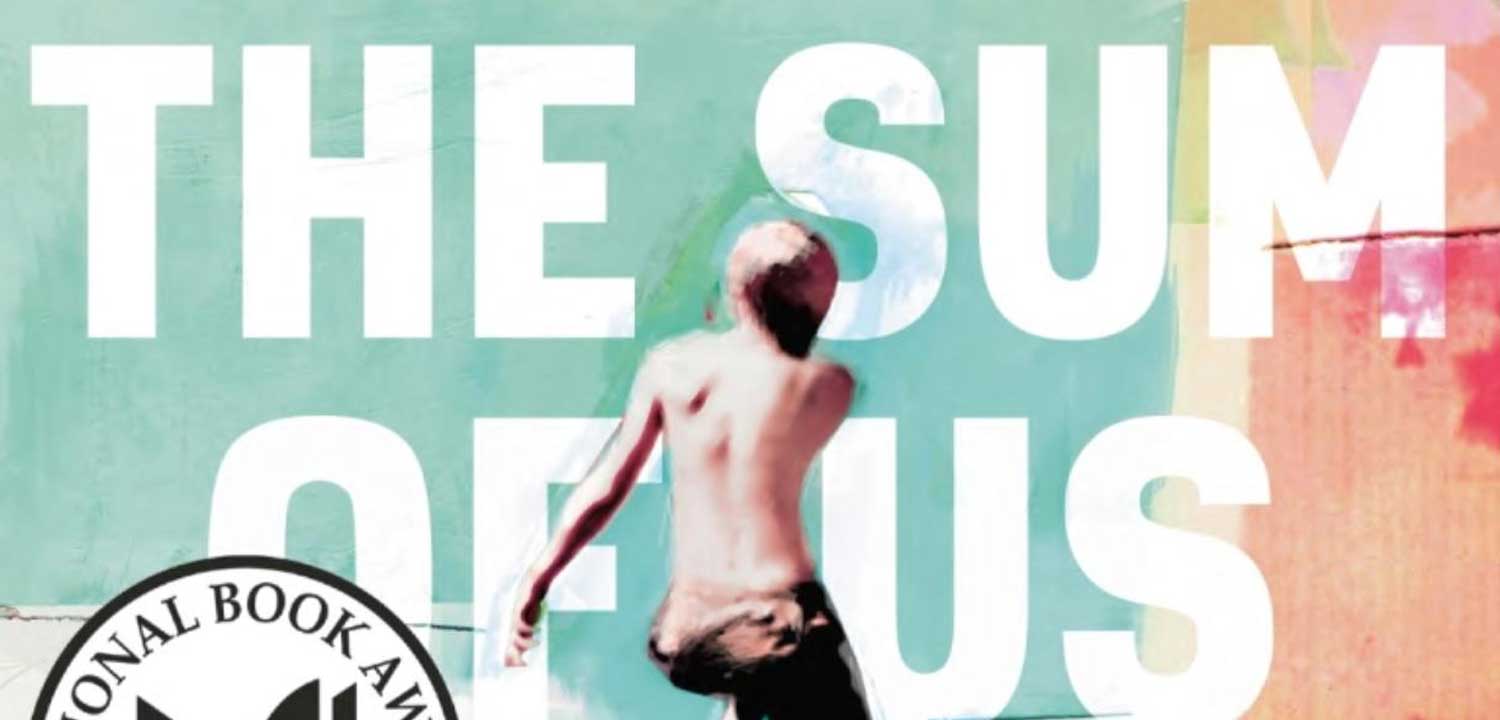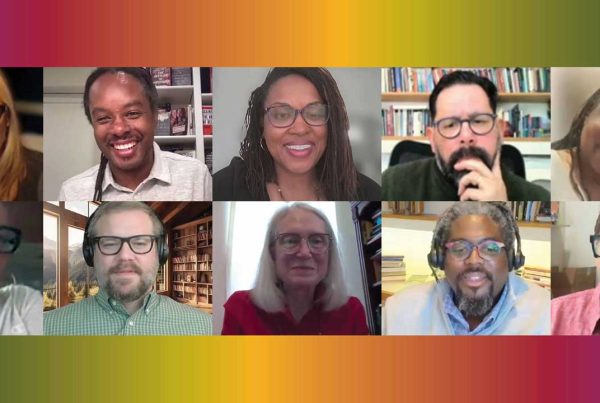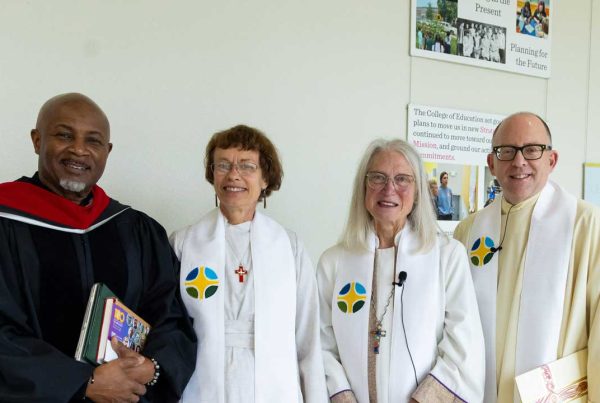Collective Cost of Racism Exposed in Book The Sum of Us
At first glance, the cover of Heather McGhee’s book The Sum of Us could seem incongruent with the book’s focus. After all, what does a child jumping into a swimming pool have to do with the economic costs of racism?
But the image refers to one of America’s most explicit demonstrations of racism’s cost: In the 1950s, when courts ordered that public swimming pools must be open to all races, many cities drained their pools rather than integrate them. The result? No one, white or black, got to benefit from a substantial community investment.
As excessive as those reactions seem – as one New York Times reviewer put it, “I was reminded of the old saw about ‘cutting off one’s nose to spite one’s face’” – McGhee explains in her book that they reflect a resonant truth about prosperity in America: the economic cost of racism is borne by everyone.
 An economist who focuses on what she has dubbed “drained-pool politics,” McGhee provides a unique perspective on the ways racism’s effects go beyond race and offers insights into how uniting against common economic injustices could unite the races. Her ideas have earned her regular appearances on shows such as “Meet the Press” and “Real Time with Bill Maher,” and she is a frequent contributor to NBC News.
An economist who focuses on what she has dubbed “drained-pool politics,” McGhee provides a unique perspective on the ways racism’s effects go beyond race and offers insights into how uniting against common economic injustices could unite the races. Her ideas have earned her regular appearances on shows such as “Meet the Press” and “Real Time with Bill Maher,” and she is a frequent contributor to NBC News.
On Oct. 3, the Faith & Action Fall Event will feature McGhee as its keynote speaker. To prepare for that evening and encourage engagement with McGhee’s ideas, themes and solutions offered, CTS is hosting a pair of September book discussions that are open to the public and hosted by Indiana native and recent CTS graduate, Rev. Grace Kozak.
Discussion participants likely will be challenged by the thesis of The Sum of Us. The book highlights ways that racism costs white people at the same time it costs Black people, and how policies and practices with racist overtones – such as low minimum wages, union busting, and housing discrimination – make life harder for poor whites as well as poor minorities.
As demoralizing as these discussions could be, McGhee sees hope in them. By finding points of common interests and shared benefit, we can more explicitly expose the economic costs of racism and encourage whites to see the that they, too, will benefit by putting an end to racist policies and practices.
After all, as separated as we might seem racially, economically, culturally, and so on, we’re all in this economy together. Or, as McGhee put it in an interview on NPR’s Fresh Air, “We all live under the same sky.”
Of course, even that idea is reflected in the cover of The Sum of Us. If you look closely at the cover image, you’ll see that the child jumping into the pool is white, while a child already in the pool is Black. The message? We’re all swimming in the same pool.
Save the date for Oct. 3 to join us for the Faith & Action Fall Event featuring Heather McGhee, and plan to dive into a robust discussion of The Sum of Us by Heather McGhee at one of two book discussions led by Rev. Grace Kozak this fall. Stay tuned to the CTS website, social media accounts, and email news for more details, dates, and registration information in the coming weeks.






